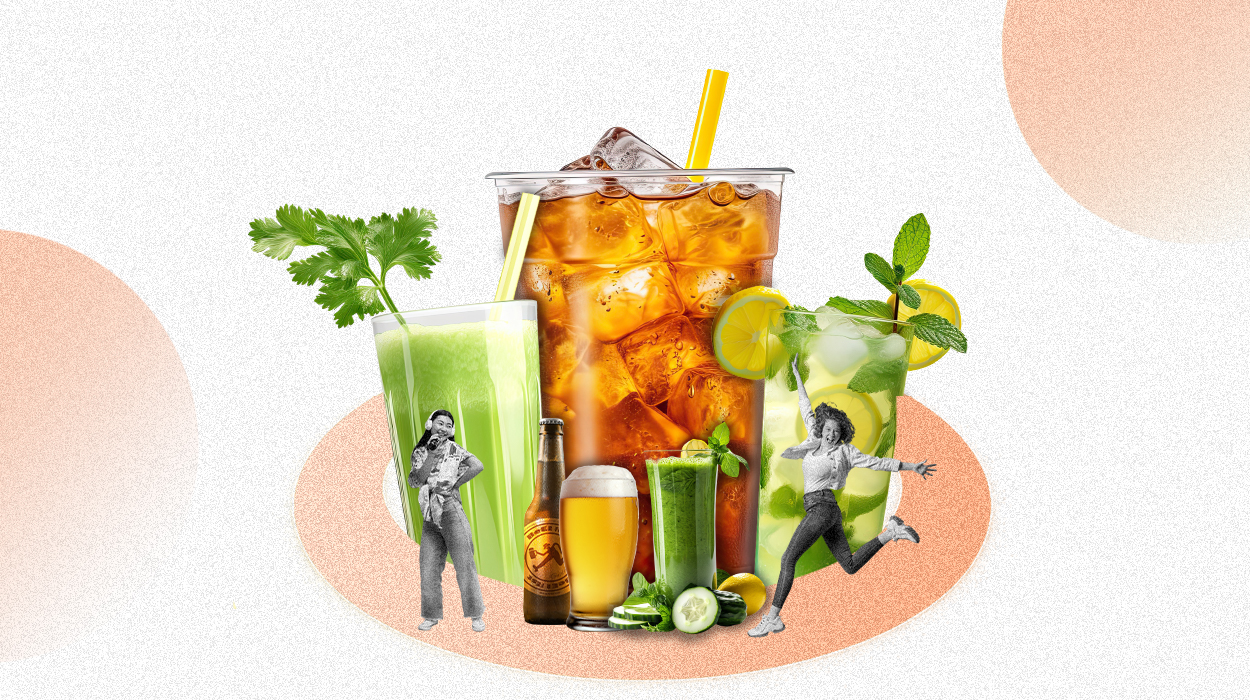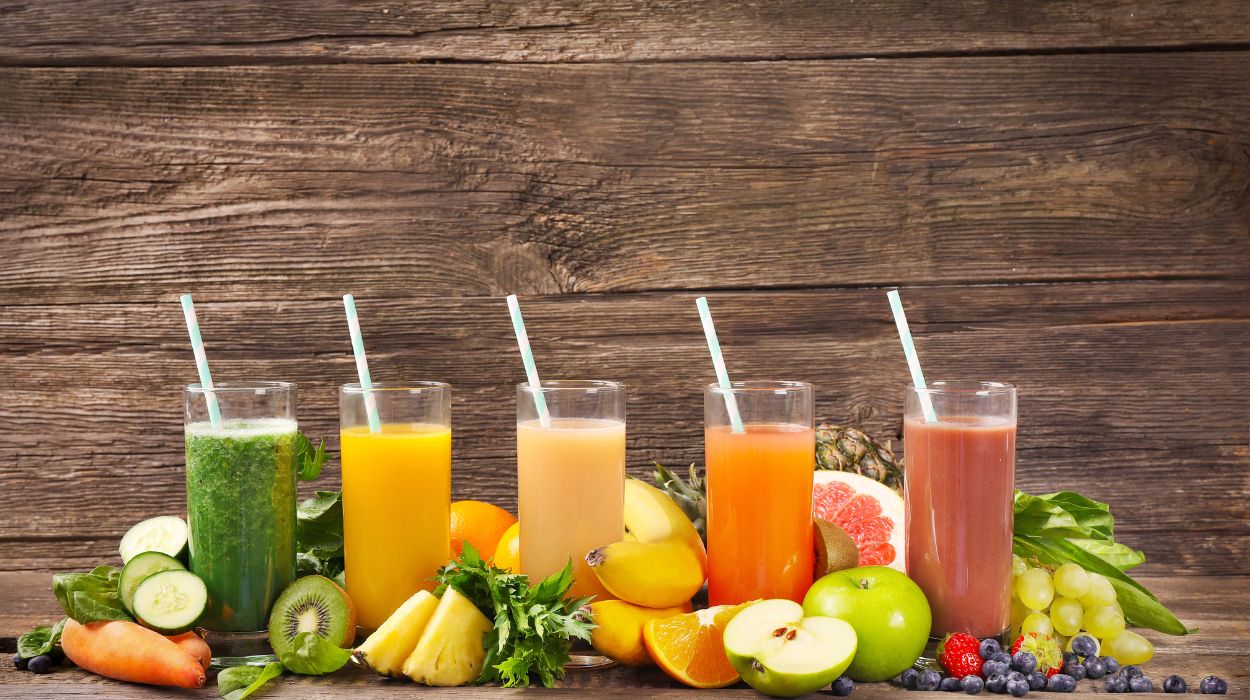 Expert's opinion
Expert's opinion
Expert's opinion
The article is a subjective view on this topic written by writers specializing in medical writing.
It may reflect on a personal journey surrounding struggles with an illness or medical condition, involve product comparisons, diet considerations, or other health-related opinions.
Although the view is entirely that of the writer, it is based on academic experiences and scientific research they have conducted; it is fact-checked by a team of degreed medical experts, and validated by sources attached to the article.
The numbers in parenthesis (1,2,3) will take you to clickable links to related scientific papers.
Keto Diet Drinks 2024: What Can I Drink On The Keto Diet?

Adhering to any diet can be challenging, especially a restrictive diet such as the ketogenic diet. We’ve all been there before; we’re on a roll, making healthy choices and then we go out with family or friends, get together to celebrate something or just spend time together and boom!
Some of those healthy choices go out the window.
Being aware of your options and how they affect your diet and your health can help you become more intentional and confident when challenges arise. Beverage choices can be particularly tricky, so we’ll be discussing some things to keep in mind.
Keto Friendly Drinks
There are many considerations when choosing beverages while on the keto diet. Below are some beverage options tailored for individuals following a keto diet:
- Herbal Teas
- Caffeinated Drinks
- Vegetable Juice
- Alcoholic Drinks (with some careful consideration)
- Soft drinks
Keto Diet Drinks: What You Can Drink?
Beverage choices can be a sneaky source of excess carbohydrates. The best keto drinks keep carbs at a minimum.
Is alcohol OK? If so, which options are best? Maybe you’d just like to add some variety to your soft drinks during the day or would like to consider keto-friendly beverages that are a good source of vitamins and nutrients in and of themselves.
We will be exploring each of these topics. Let’s get started!
Herbal Teas
Tea can be an excellent addition[1] depending on your tastes. So long as you aren’t adding any sources of sugar, the tea itself contains zero grams of carbs.
Herbal teas are generally non-caffeinated. It is important to consider the caffeine content of different types of tea, particularly if you’re enjoying it later in the day and if you have a history of high blood pressure.
The stimulant effect can help boost metabolism but can also negatively impact anxiety and sleep.
Caffeinated Drinks Are Keto Beverages
Coffee, energy drinks, and some teas have significant amounts of caffeine. This can be an important factor, depending on the amount contained in each serving (and the number of servings).
Similar to tea, coffee and some energy drinks introduce an insignificant amount of carbohydrates as long as no sugar-based sweeteners are added. However, the caffeine content will likely add up more quickly. The effects of caffeine can vary from person to person.
The impact of caffeine on blood pressure can be significant but often short-lived. The concern arises specifically for patients with a history of poorly controlled or very high blood pressure (defined as either number is higher than 160/100 mm Hg) and who are drinking 2 or more cups of coffee per day.
Specifically in these patients, a higher rate of cardiovascular deaths has been observed. In contrast, this increased risk was not observed in patients without high blood pressure and was also not seen for anyone drinking only one cup per day.
In short, drink coffee in moderation. Caffeine can be great if enjoyed at the right time of day and in the right amounts. 100mg is likely fine for most people. 200mg starts to introduce some potential concerns.
This is also very important if considering energy drinks, as these often have high caffeine content. There are energy drinks available with zero sugar, so they will be keto-friendly but caffeine content can cause serving sizes to be misleading.
Popular zero-calorie energy drinks such as Bang can contain as much as 300mg of caffeine per can.
Vegetable Juice
Vegetables are a source of carbohydrates, so it is important to keep in mind the sugar content in different juices. Checking labels is beneficial for pre-packaged store-bought options. Alternatively to make meal planning easier, check out some of the best keto meal delivery services.
If you plan on making your own juice, there are many recipes and ways to adjust flavors to your preferences. This can be an excellent way to introduce additional vitamins and nutrients in your drinks.
Tracking the grams of net carbs from each of the ingredients is needed to ensure the drinks remain keto-friendly, but there are plenty of recipes available to help.
A great way to boost nutrients without sacrificing flavor is to mix in citrus juice and keto-friendly sweeteners:
- Base Ingredients
- Cucumber
- Spinach
- Kale
- Celery
- Citrus (adding acidity offsets any bitter flavors)
- Lime juice
- Lemon juice
- Sweeteners
- Sugar-free simple syrup
Alcoholic Drinks (with some careful consideration)
Keto dieters who choose to drink alcohol have some low-carb options available. Keto-friendly alcoholic drinks include:
- Light beer
Carb content will vary but there are low-carb beers containing 3 grams or less which can fit into a carefully planned diet. Examples include Michelob Ultra, Miller Genuine Draft 64, and Budweiser Select 55.
- Wine
There are dessert wines that are certainly not keto-friendly due to their high sugar content and a range of wines available that may push the limits. Dry wines contain less sugar and will fit more easily in keto diet drinks.
Some examples with 3-4 grams of carbohydrates per serving are champagne, Pinot Noir, and Sauvignon Blanc.
- Hard Liquor (Spirits)
Many liquors are carb-free (vodka, gin, whiskey, etc.) and can be combined with sugar-free mixers to create keto-friendly drinks.
If you are trying to lose weight, you should know that alcohol does pose some potential challenges. The weight loss process is delayed or made slower by a shift of your body’s resources to the metabolism of the alcohol itself.
The fat-burning process associated with ketosis is delayed by drinking alcohol. Drinking alcoholic beverages can also be associated with sugar cravings, lower inhibitions, and a variety of adverse health effects.
Soft drinks
If you prefer not to sip on plain water throughout the day, you may have tried one of the many carbonated beverages on the market. These are marketed and produced in many different ways: soda water, seltzer water, diet coke, club soda, and sparkling water – a basis of carbon dioxide infusion is the same.
Many products contain artificial flavors, and natural flavors, and many will contain zero carbs or low carb content, making them safe options for a keto lifestyle.
Diet soda is also an acceptable option as many of these are considered to contain zero calories. It should be noted that artificial sweeteners such as aspartame have received increased scrutiny over time but there are limitations to the quality[2] of available studies.
Some patients have associated use with headaches, diarrhea, and other symptoms. It’s likely helpful to drink these products in moderation and monitor any potential caffeine content.
There are a variety of beverages available to keto dieters. People with a wide range of preferences are likely to find something they love. If you need an extra energy boost from caffeine, most energy drinks or you enjoy alcoholic beverages some options fit well within the keto diet.
Moderation is paramount to ensuring these options will also fit within a healthy lifestyle!
Drinks For Keto Diet: What You Can Not Drink
Fruit Juice

In general fruit juices contain a lot of sugar. Exceptions include lemon juice or lime juice for adding additional flavor to other beverages.
Regular Soda Is Not Suitable For Keto Drinks
Non-diet sodas contain a lot of sugar. These beverages will impact blood glucose very quickly and put a halt to ketosis.
Most Beers
Beer often has a very high calorie and carbohydrate content. There are some exceptions, but generally speaking, it may just take one drink to introduce enough carbs to end ketosis and shift your body back to using glucose as a primary fuel source.
Recipes Of Keto Drinks
Keto Friendly Mojito
- White Rum, 1.5 ounces
- Lime Juice, 1.5 ounces
- Mint Leaves
- Soda water (enough to fill a highball glass)
- Ice cubes
- Sugar-free syrup, optionally
Add rum and mint leaves to a highball glass and muddle mint leaves. Add ice cubes to fill the glass. Rum and soda water (sugar-free syrup to taste, if desired), and stir to mix. Enjoy!
Keto Chocolate Avocado Smoothie
- Half of a whole avocado
- 1 cup unsweetened almond milk
- 1 cup spinach
- 1 tbsp cacao powder
- 1 cup ice cubes
- Your choice of sweetener to taste (Stevia, etc.)
Add ingredients to a blender and pulse until smooth. Pour into glass and enjoy!
Conclusion
Keto Diet Drinks 2024, What can you drink and what should you avoid? Alcoholic and non-alcoholic examples and strategies.
+ 2 sources
Health Canal avoids using tertiary references. We have strict sourcing guidelines and rely on peer-reviewed studies, academic researches from medical associations and institutions. To ensure the accuracy of articles in Health Canal, you can read more about the editorial process here
- James Michael Brimson, Mani Iyer Prasanth, Dicson Sheeja Malar, Rajasekharan Sharika, Bhagavathi Sundaram Sivamaruthi, Periyanaina Kesika, Chaiyavat Chaiyasut, Tewin Tencomnao and Anchalee Prasansuklab (2021). Role of Herbal Teas in Regulating Cellular Homeostasis and Autophagy and Their Implications in Regulating Overall Health. [online] 13(7), pp.2162–2162. doi:https://doi.org/10.3390/nu13072162.
- Toews, I., Lohner, S., Küllenberg, D., Sommer, H. and Meerpohl, J.J. (2019). Association between intake of non-sugar sweeteners and health outcomes: systematic review and meta-analyses of randomised and non-randomised controlled trials and observational studies. [online] pp.k4718–k4718. doi:https://doi.org/10.1136/bmj.k4718.



